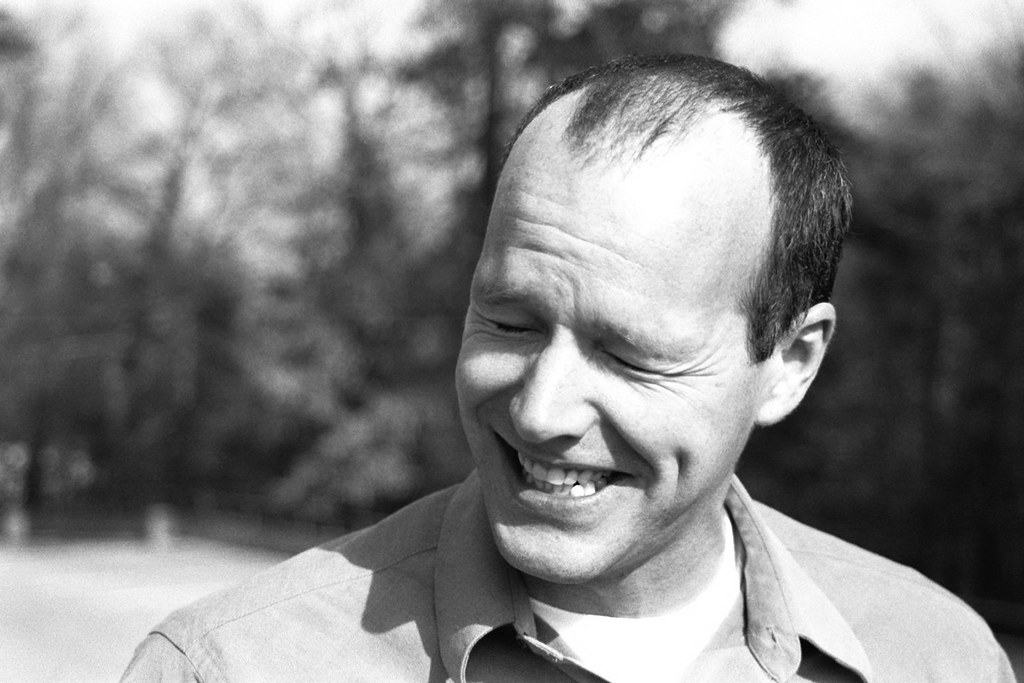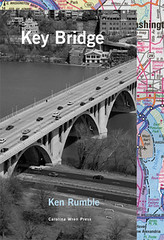Reading Wrap Up
Thanks Joe Donahue & Jim Brasfield for a terrific reading last night and thanks to everyone who came to reading for being such a great audience. A downloadable/streamable audio file will soon be available here on the website.
Below is the introduction I wrote up for the readers -- a reading review will be coming soon. Stay tuned for information about October's reading featuring Aaron McCollough & Tony Tost.
(some of this was revised/altered in the moment as they say)
- Announcements and welcome
- October 23rd, 8pm, Tony Tost & Aaron McCollough
- November 13th, 8pm, Jon Thompson & C. S. Giscombe
- Welcome
- Thank you all for coming
- Welcome to the third season of the Desert City, we’ve had a great couple years and I’m looking forward to another one.
- The Desert City is a non-profit, volunteer run and funded organization. Both of the poets are appearing tonight without the promise of compensation. Please make a donation to help support the poets and the series. Thanks. Please buy books to support the internationalist.
- It’s exciting to be starting up the series again in a new home with such a great community
- Thank yous:
- Firstly I’d like to thank PS211 and Karen Shelton and the Sizl gallery for hosting the series over the last two years
- Next, our new home, Internationalist Books: Matt, Kristina, Ethan, and everyone else
- All the Lucipo folks for making all the work on the series so worthwhile and enjoyable
- my home, the Blue Heron Farm community
- Kathryn Salisbury for being a partner in all I do
- and lastly my daughter Violet – here’s hoping the future is also rife with poetry
- Tonight though, we’re here to see James Brasfield and Joseph Donahue.
- The idea for this reading came about one night as Joe, myself, and many others were celebrating the end of another day of the Carrboro Poetry Festival. Joe and I had realized several months previously that we had a mutual friend in Jim Brasfield. Jim had been my teacher while I was in grad school at Penn State, and he had been a classmate of Joe’s while they were both at Columbia in New York. Joe and I had been talking about trying to get Jim to come down and read in the series, when as a side comment, Joe mentioned to someone else that his 50th birthday would be September 22nd and that he wanted a 50 year old bottle of scotch to celebrate the day with. I couldn’t provide the 2 grand for the scotch but thought that Joe’s birthday would be the perfect opportunity to bring Jim down to read, celebrate, Joe’s birthday, and kickoff the Desert City. So here we are.
- Last January when I introduced Joe in the Desert City I compared his work to the of T. S. Eliot; after getting to know Joe’s better, it’s clear to me that the other great 20th century poet Donahue can be aligned with is Robert Duncan, who mapped the coincidence of the physical, spiritual, and mental landscape in his poems. Duncan writes in one of his most famous poems “Often I am permitted to return to a meadow / as if it were a scene made-up by the mind, / that is not mine, but is a made place, // that is mine, it is so near to the heart, / an eternal pasture folded in all thought / so that there is a hall therein // that is a made place, created by light / wherefrom the shadows that are forms fall.” It is in this same meadow, or field, that Joe Donahue’s poems begin their search: their exploration of creation, of all of our own individual realizations of the world which in turn manifest the greater world of which we are all a part.
- It’s great to have Joe Donahue here not only to read tonight, but as a member of the Triangle community. Over the last several months, Joe has become an invaluable mentor for many of us local poets here, a trusted source of information and an intelligent and wry bar companion.
- During the day Joe teaches literature and writing at Duke. He came here most recently from Seattle after spending many years in New York where he received his PhD from Columbia University
- Donahue is the editor of several anthologies regarding contemporary poetry as well as the author of five collections of his own work. Among his collections are World Well Broken, Terra Lucida, and in spring of 2003 Incidental Eclipse. Among other things, tonight we are celebrating the publication just last week of his sixth collection of poems In this Paradise, published by Carolina Wren Press.
- Incidental Eclipse is singular in it’s ability to pull together such loosely connected images as a woman, Christ-like, that “steps onto the lava flow,” a fighter pilot explaining the magic of “ducting” : “suddenly beyond our range a continent would flash then disappear”, and the transcendent moment “At dawn all distance comes to a burning point our bodies no more than invisible currents where the light turns gold as ice on a mountain.” Donahue asks for reconciliation of these contradictory images through science and prayer: “Let autopsies open the chambers of our hearts. Let men of science find in our nerves the likeness of pillar and scourge”; “Come to me, truth of the sun, through some opening in my head.”
- Continuing the ambiguity explored in Incidental Eclipse, the clear and shining geography of Joe's latest collection, In This Paradise, is continually being created or destroyed. In each case, visions of Eden shine between the cracks in perception. From their origin in a wasteland, these poems hold out simultaneously the paradise we live in as it is being destroyed, and the paradise we are moving towards, that we are becoming. Donahue's roving eye finds that every fragment of divinity, of truth, "continues the Creation. // Every scrap & tatter of a true image / proves the world has never yet been complete." <>Donahue’s poems read like passages that have been lost from holy scripture; they intimate an architecture of a shadowy paradise. Donahue does not provide a map for this paradise -- but where he looks, hidden continents appear.
- At the root of Jim Brasfield’s poems is the belief that nothing is more strange, magical, and delightful than the sticks and stones of daily human life, that through the most careful observation of experience we can receive revelations. In his poem “Only to Listen” for example, a seemingly random assortment of night sounds is revealed to be a traveler from another life. He writes “I woke with a story from the dark. / I met a household of disbelief.”
- Originally from Savannah, Georgia, James Brasfield has spent the last seventeen years in State College, Pennsylvania, teaching at Penn State University.
- He has received an artist’s fellowship from the National Endowment for the Arts and has twice been a Fullbright Scholar in the Ukraine.
- During his time in the Ukraine, Jim met and began to work as a translator with the Ukrainian poet Oleh Lysheha.
- Their collaborations were eventually published in 2000 by Harvard University Press as The Selected Poems of Oleh Lysheha, for which manuscript they won both the Pushcart and the PEN Awards in Translation.
- His own poems have appeared in the Agni, Black Warrior Review, Chicago Review, Colorado Review, Crazyhorse, Poetry Wales, among others.
- Whether it’s in his translations or his own poems, Jim’s aim is for the sublime and, like Emerson, the ecstatic. In “The Chair and the Pipe” a poem that imagines a conversation between Van Gogh and his brother Theo, Brasfield writes “Snow falls, each flake a crystal petal. // Each branch gathers up its layer. / Seeds from the sunflower / lay eclipsed in the frostburnt herbs.” From within this vision of ice and fire and ash Van Gogh sees “the still deeper shades of black unending” waiting to be created with sacks of ash into “garden, field, and sky.”
- What hinders access to the ecstatic state is our disbelief that it exists. Though it is always there, we seldom return to it. In Brasfield’s “The Blue Cottage” he represents the state of transcendence as an empty house found in the woods “Past the peonies / about to blossom, the roses in bloom, you pressed / your open hands to the clean glass, / resting your forehead on your spread fingers. / Each point of touch was an island of flesh on the pane. / You felt no fear, no anxiety of return.”
- It is, ultimately in Brasfield’s poems, a “return of the recognizable” – what the world around us provides, gives us access to, is the real world, the eternal world of sublime and ecstatic experience.
- Please welcome Jim Brasfield.
Please welcome Joseph Donahue.



1 Comments:
I've posted a review on my blog:
http://the_delay.blogspot.com/
as has Marcus Slease on his:
http://marcusslease.blogspot.com/
9/21/04, 10:28 AM
Post a Comment
<< Home